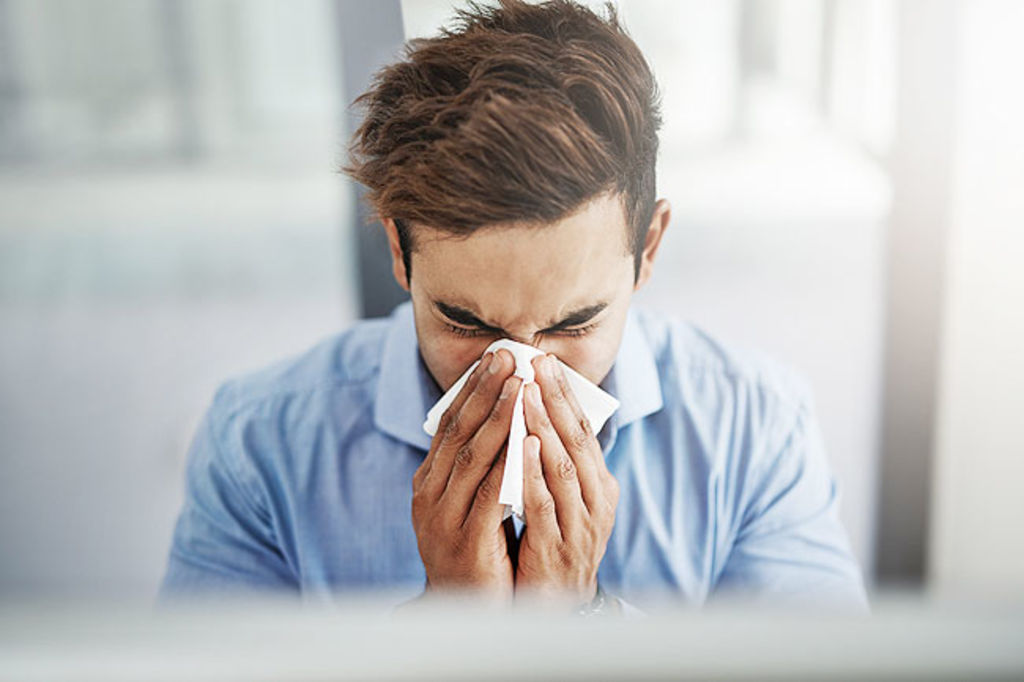How to beat a cold

Welcome to winter. Mercifully, it’s been fairly sunny in Melbourne so far (please Jane Bunn, promise us this is going to continue), but sadly we all know those grey, rainy days will set in sooner or later.
Unless you’re about to board a plane and escape the southern hemisphere until, say, September, it’s almost inevitable that most of us will catch the common cold. I for one cannot wait to board a train packed full of sniffers and sneezers.
But surely there must be something we can do to avoid the common cold this winter? Here’s the bad news, courtesy of Dr Abhi Verma, who has volunteered to share some of his medical knowledge.
“There’s nothing proven to prevent a cold; nothing been proven to make a cold any shorter in terms of duration,” says Verma, a member of the Royal Australian College of General Practitioners.
However, he says, maintaining a healthy diet, getting plenty of rest and keeping hydrated can give your immune system the best chance. As can avoiding places where sick people congregate – though of course it’s a little difficult to avoid the office if you want to earn a living.
So how does a person catch a cold in the first place?
“Typically it’s a common virus – typically a rhinovirus or a coryza virus – usually it’s just transmitted through droplets or contact with people who’ve got the virus,” says Verma. “So it’s a combination of being exposed to the virus as well as when we’re a bit rundown in the cold weather, it just makes for a bad combination.”
If all the usual symptoms, which may include a runny nose, sneezing, a sore throat and tiredness, have already hit, there are a few things you can do.

“People do take things like cold and flu tablets, which certainly provide some symptomatic relief but should ideally be taken in conjunction with advice from your general practitioner, primarily because those medications can interact with other things that you might be taking,” says Verma.
How about potential remedies such as Echinacea, Vitamin C or zinc?
“While they probably not harmful if taken at appropriate dosages, there’s no real evidence to suggest that those things make a huge amount of difference.”
He says other more homespun remedies, such as chicken soup or inhaling steam, may be helpful – even just for the fact they provide you with some comfort.
While a trip to the doctor might seem like a waste of time and money if you think you just have a cold, Verma begs to differ. He says a quick visit is one of the best things you can do to ensure you’re not battling something more serious such as influenza.
“Ideally rest is a key important aspect of recovery, so seeing your doctor, getting a certificate for a day or two off work is useful not only for you, but of course so you don’t spread the bug to other people.”
Part of taking it easy is avoiding strenuous exercise, says Verma. While a walk around the block might be OK, CrossFit is definitely not on the recovery menu.
“Make sure you avoid getting dehydrated and also avoid overexertion because the flu can really knock out your immunity and if you overexert yourself you can really hamper your recovery.”

Another one to watch out for is airplane travel. With hundreds of people cooped up together in a confined space for hours on end, it can be a hotbed of germs.
If you are lucky enough to be flying somewhere warmer this winter, how can you avoid a cold? After all, the last thing you want after a week or two of relaxation is to return as a sniffly mess.
“It’s a really difficult one,” says Verma. “Ultimately people do things like using hand sanitizer, washing hands, which is incredibly important – I really can’t overemphasise how important hand hygiene is.
“Some people have tried using masks and I don’t know that there’s significant evidence that masks make a huge difference for common things like the cold.”
He says about the best thing you can do is avoid sharing utensils or drinks with people you suspect are unwell. You should also keep your fluids up on the plane and make sure you’re vaccinated before hitting the tarmac to avoid catching something more serious.
“Because a cold compromises your immunity and allows you to get any other number of bugs on top of it.”
We recommend
We thought you might like
States
Capital Cities
Capital Cities - Rentals
Popular Areas
Allhomes
More







